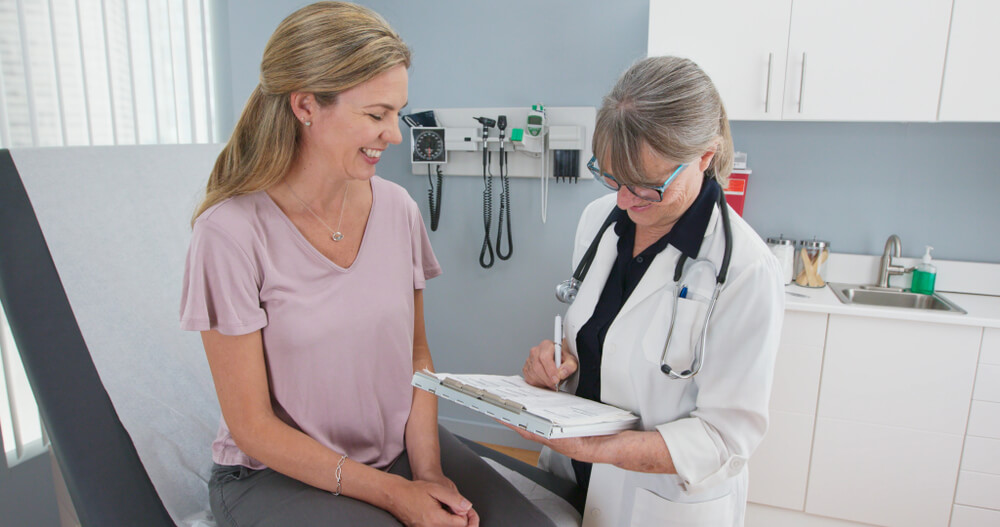Sometimes, being female can come with its own collection of pros and cons depending on how you look at the situation. Often, women carry the primary responsibility of contraception and the final say in reproduction. However, for women in the United States and elsewhere, these responsibilities are freedoms. Access to women’s health care has finally provided women control of their own bodies. So, Women’s Care of Bradenton is here to empower women to see a gynecologist and take control of their female health.
What is a Health Myth?
A health myth is a stereotype you may have heard about wellness. There are many health myths surrounding areas of feminine health. For example, let’s look at period facts and myths. Each month, our bodies go through menstruation which affects everybody a little bit differently. Some women have more intense symptoms than others. Did you know, though, that not all period pain is directly related to menstruation? Sometimes, the symptoms of certain underlying conditions can become worse during that time of the month. Without seeing a gynecologist, you could be suffering and miss out on a proper diagnosis.
It is essential to see a gynecologist and keep up with your reproductive health beginning at your first period. Once you are 21, your gynecologist will start to screen for cervical cancer. You can also learn about your birth control options, sexual health, and much more when you see your feminine health doctor.
Body Myths

Have you ever heard an assumption or exaggeration relating to women’s health? Maybe you were left feeling bad about yourself or even adjusted your lifestyle. We are here to debunk body myths to empower you with accurate women’s health facts.
- Penetrative Period Sex Is Forbidden.
Maybe you have heard some opinions on penetrative sex during your period. Did you know it’s normal and OK to remain sexually active during your menstrual cycle? There are no medical consequences of engaging in sex during your period. The only one who can decide whether or not to participate in period sex is you. Only have sex during your period if YOU want to; never feel pressured to do something that makes you uneasy. Maybe bring it up to your partner if you have been curious about engaging in period sex. Then, proceed how you both agree upon in a safe space. - You Shouldn’t See Your Obgyn On Your Period.
It can be hard to schedule an OBGYN appointment in advance if you have an irregular period. You can still come to your appointment even if you are on your period. However, depending on the purpose of your appointment, flow, and comfort levels, you may want to consider rescheduling. Perhaps it is the last day of your period, and your flow is light. You can still have a pap smear done if that exam is on your appointment agenda. Even if you are in the middle of your cycle, we still recommend you come on into your appointment. We would rather keep you on schedule with your regular checkups, and after all, our area of expertise is female health, so we understand what your body is going through. We are not here to pass judgment. - Undergarments Cause Breast Cancer.
Have you heard the body myth that bras cause breast cancer? Unlike aluminum-filled deodorant, this is one of those wild health myths. The American Cancer Society held a study to determine an association between wearing a bra and breast cancer. The research debunked the body myths surrounding bras. Let’s set the standard on women’s health facts. The best way to prevent breast cancer or catch it early is to have annual mammograms beginning around age 40. Depending on your familial history, your healthcare professional may recommend you start sooner or have gene testing. - Douching Cleans Your VaginaAnother common component of period facts and myths is that douching cleans your vagina. The practice is actually very irritating to sensitive skin. It can eliminate the good bacteria your body produces—those who frequently douche run the risk of becoming more susceptible to vaginal infections. Instead, women should concentrate on cleaning the exterior of their vagina with warm water and gentle, unscented soap. If you are worried about how your vagina smells or odors, we recommend consulting your gynecologist to rule out an infection.
- Extreme Mental Health Suffering Before, During, Or After Your Period Is Normal.
Have you ever heard the stereotype, “She must be on her period?” Does it make you just as upset as us? Signs of severe anxiety, depression, mood swings, or anger around the time of the month are not normal. Yes, our hormones can make us a bit more emotional, but you should let your doctor know when our mental health is at stake. There is a chance you could be suffering from PMDD. Let’s be clear on women’s health facts, PMDD is similar to PMS but more severe and often confused. It causes severe emotional distress in the weeks leading up to your menstrual cycle. If you are suffering, you should schedule an appointment with a gynecologist. - Your OBGYN Will Judge You.
Your OBGYN is only there to help you. They are not there to gossip or tell your mom, significant other, or anyone about your health matters. In fact, they are often prohibited by HIPAA laws. Your female health doctor is there to help you along the way to achieving the best female health you are capable of. Your doctor is there to guide, educate, and inform you. They are not there to tell you what to do or by any means judge you. Our practice empowers women to choose what makes their bodies feel good, empowered, and well. It is our mission to make sure every woman who visits our practice receives the best possible care. - A “Fishy” Vaginal Smell Is Normal.
There is a common misconception that a fishy vaginal odor is normal. However, the fish-like smell can be associated with Bacterial Vaginosis, otherwise more commonly known as BV. The condition is more widespread and more severe than yeast infections. If you do not receive the right treatment, the condition can lead to pregnancy complications or infertility. Women experiencing chronic yeast infections should not only visit their female health provider for the proper care but also have their doctor determine exactly what they are suffering from. Symptoms among different vaginal infections can appear similar, which is why it is best to avoid self-diagnosis. BV and other infections have to be treated with antibiotics.

A Note From Women’s Care of Bradenton
At our obstetrician and gynecologist office, we put the comfort and care of our patients above all else. We encourage every woman who walks through our doors to ask any questions about her body. In all areas of health, you are your best advocate. It is essential to let your doctor know about any symptoms you may have to get them addressed as best as possible.
Maybe you have heard some of these myths surrounding female health before. Are you still unsure about a body myth, or do you have any questions for us? If so, book an appointment with one of our healthcare professionals, and we can answer any questions or concerns you have.


